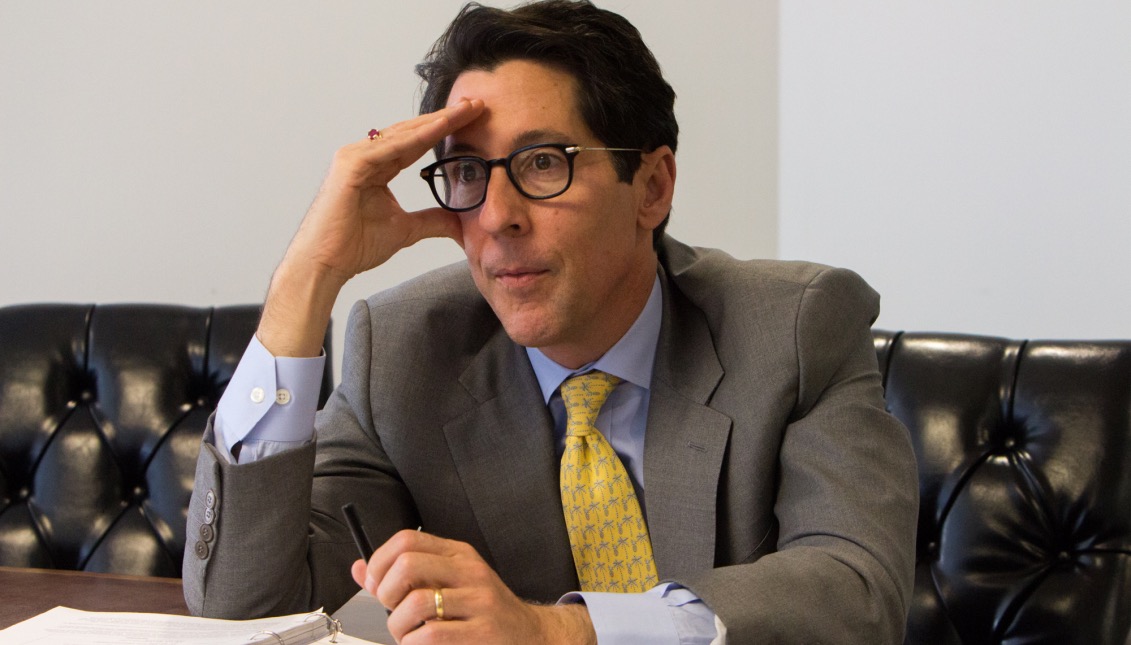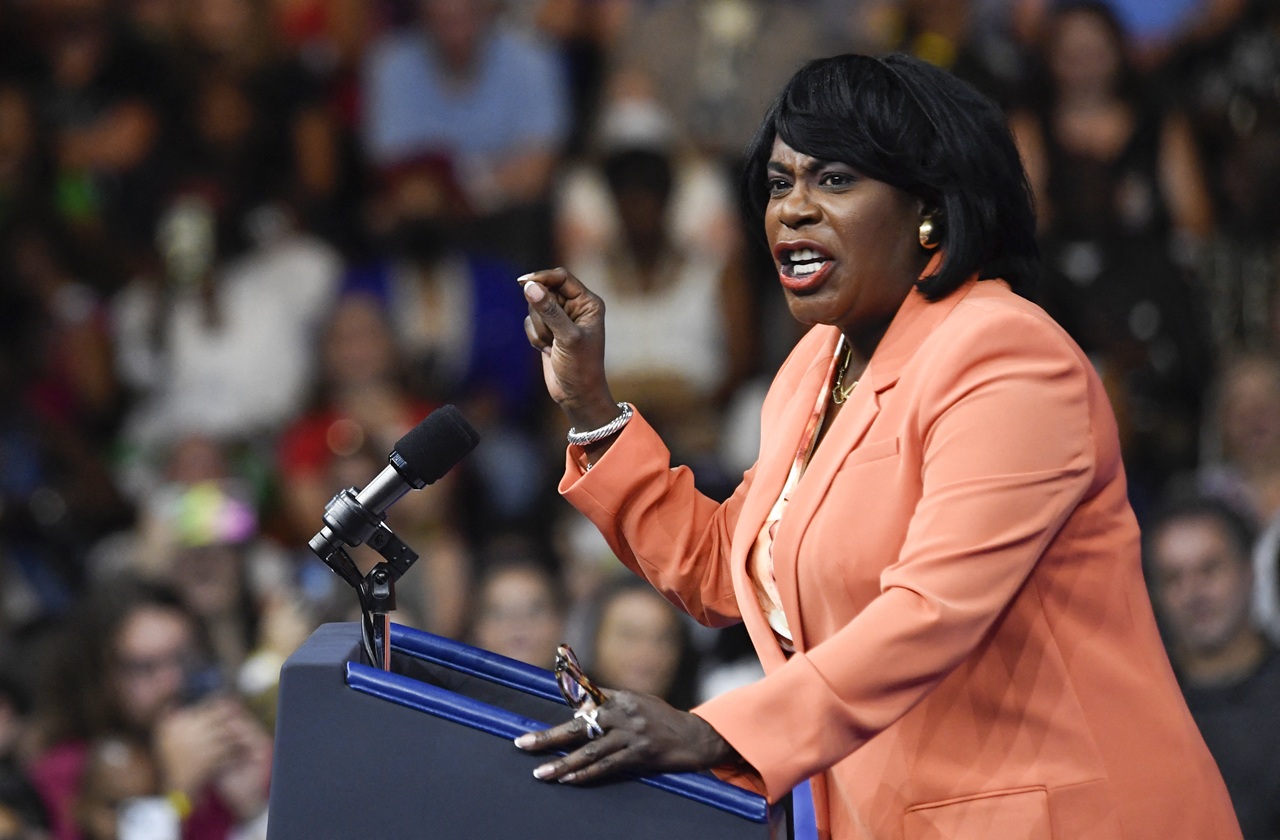
The fiscal state of Pennsylvania "is not healthy"
Pennsylvania Treasurer Joseph Torsella has become one of the most heard independent voices in the midst of the fiscal crisis of the state.
Pennsylvania's fiscal health has an unknown prognosis since the caretakers - the General Assembly and the Governor - do not agree on the best way to sort the impasse without creating greater trauma in the already suffocated state coffers.
A deficit of $2.2 billion in the state budget that forced Governor Tom Wolf to delay payments of $1.7 billion in Medicaid and pensions in the middle of last month, added the delay that completes more than 100 days in the approval of the budget for fiscal year 2017-2018, which was supposed to be ready by June 30.
While some in the House of Representatives advocate to borrow from state funds such as the STIP (Short-Term Investment Program) to pay the debt - the typical “robbing Peter to pay Paul” - others propose to create more taxes in industries which remain untouched by the state until now.
Amidst this chaos, Joseph Torsella, the Pennsylvania Treasurer, left more than one Republican legislator with an open mouth in September when he refused to touch state investment funds with which Republicans sought to avoid the delay in the payment of debts.
To make matters worse, last October 2nd, the credit rating agency Standard & Poor's issued a negative concept on the state's ability to pay, lowering its rating from AA- to A+, which leaves Pennsylvania very bad for loans to financial institutions.
$2.2 billion is the gap in the state budget.
Today many people - especially from the education sector, pensioners and non-profit organizations that depend on public funds - are eating their fingernails in face of what appears to be an imminent collapse of the state’s economy.
AL DÍA News spoke to Joseph Torsella, the man who has the keys to the safe, to understand why we have reached this point, what can happen if there is no quick solution and, in his opinion, what precisely must be done to get out of this dead end.
If I were doctor, I would tell you the patient is not healthy. We have some real challenges and we are not facing them.
As a state, we have repeatedly failed to address what is a structural imbalance between revenues and expenses, we just got our sixth credit downgrade, and the depressing part of that is how familiar the language is in the last five warnings of downgrades. Which is a history of adopting budgets late, and not reconciling in a structure our expenses and revenues.
As a state, we are underperforming. Yes, we are creating jobs, but we are doing it at a little less than a rate of one percent and the states around us are doing at least twice or more.
Our wages have bumped up a little bit by 1.5%, the states around us, their wages are going up by 3% and, by the way, in Delaware the wages are going up by 11%.
So while I think we have a lot to be hopeful for and a lot to build on, I think we are leaving too much potential behind. I want us to think about how we can leverage Pennsylvania to create a more shared prosperity.
When you are in and you are out you don’t face up to your problems, eventually your problems will come home to rust.
I try as treasurer to be an independent and sometimes an irritating voice on this but I try to draw people’s attention to this fiscal challenge and we are costing Pennsylvanians money and opportunity by not addressing it.

I work in custody of the general fund, which is kind of the checking account for the state and what we’ve shown is that for the past ten years the opening balance of the general fund every year has gone down.
Meanwhile, our need to borrow for operating expenses has gone up occupying more of the year than it ever used to and it is starting earlier than it ever used to.
There is nothing wrong with borrowing money if you have a true sort of cash flow spike, but what’s happened in Pennsylvania is that we went from doing that to doing something more dangerous which is borrowing to cover up that we have not made revenues and expenses match. And you can only do that for so long before the consequences start occurring.
So in our latest projection, as we end this budget cycle, we shared with the Legislature, the public and the media, that we were looking at a period where potentially two thirds of the year Pennsylvania needs to borrow to pay its bills and that’s because for many years we swept problems under the rug and right now everyone acknowledges that the budget is 2.2 billions ahead of the revenues that we have coming in. We are now nearly three months overdue for that second piece of the equation.
It’s a fair argument to have to say “should we cut these expenses or should we raise these revenues?” When both houses of Legislature -on a bipartisan basis vote for a budget- say “we want to spend this amount of money,” and then say “but we are not gonna pay for that amount of money,” you are in a place that if you try to get away with it, as a state, we shouldn’t be doing it.
The place to start is -I know no one likes to hear this but- face up to the need for those revenues and make some tough decisions pretty quickly or we’ll be in trouble.
One thing I want to be clear about is that I am not trying to be ‘the sixth budget negotiator’ between the House and the Senate and the Governor.
But, from what I’ve said, I think a tax on extraction of natural gas [is needed]. We are the only state that doesn’t have one. I think that is a sort of long overdue.
The Senate passed a package that no one loves it, but it raises a mix of revenues that are about 600 million dollars in recurring revenues. My job is not to take sides on this, my job is to tell that is time to put this behind us.
We need to do a better job at getting more of our kids and more of our adults equipped with education, we should talk about the state of our infrastructure and the state of our investments and human capital.
The more time we spend talking about how we’re gonna pay the bills this year, the less time we have to talk about how we’re going to position ourselves so we are a state where people want to live to ten years from now.
No one likes to be criticized. I would prefer that everyone in the General Assembly agree with me all the time but when I ran for this job I knew that I was going to make decisions that wouldn’t be popular.
Going back to the spring, I started warning the General Assembly; we sent many numbers of letters, month after month, warning that we were going to be faced with an unprecedented situation where very early in the year the cash position in the general fund is going to go negative and I outlined what that looked like.
My chief concern is that my obligation constitutionally is that I am in charge of safeguarding the investments that represent people’s taxes.
RELATED CONTENT
The question I faced on September 15th was, after months of warning, whether we should use those investments to lend the state money in a way that would let it avoid finishing the budget work; which is not the purpose of the investment funds that I’m entrusted with.

It’s reasonable for us to say “it’s a prudent investment if expenses balance revenues we can make a short-term loan.” But the question is whether it’s a prudent investment to lend to an entity where they literally can’t explain how they could repay it, because they have a 2.2-billion-dollar gap.
The answer to that question, in my view and the view of every expert I talk with, is no.
Furthermore there is the larger question of the precedent. As far as I know, no treasurer has ever lent that kind of money when there is not a balanced budget.
The question is by making these loans, are we facilitating long-term good decision making or we’re just facilitating covering up and avoiding responsibility. I got an obligation to be a prudent investor of the money, and it’s unfortunate if it makes people angry.
By the way, what I hear outside of Harrisburg is that people think I am doing the right thing.
Yes, I think there is a need to light an alarm. On the downgrade, the way that I would explain it is simple: that’s a backdoor tax on Pennsylvanians, they’re not going to see it on the tax bill but the cost of the downgrade is about 53 million dollars. So what’s happened is that the credit downgrade has imposed a hidden tax on the long-term borrowing that we need to do.
Again, there is nothing wrong with borrowing when you’re doing it to build infrastructure, invest in human capital or create opportunities... when borrowing is trouble is when you’re doing it to pay the light bill.
Number two: I think most people do understand kind of reputation and bragging rights here which is in the next time you go to a family reunion with family members of all 50 states, you’re among the four states with the worst credit reputations. That affects decisions about who is coming to Pennsylvania and whether we are going to attract the kind of investment we need to have.
I want to be careful here, I don’t want to burn the bridge, but Legislature has a constitutional job to pass balanced budgets, to agree on some expenses and now they have to grow revenues and they were supposed to have done it by July 1st.
Must people understand that when that is not happening, something is not right, and we’re going to feel it in our lives.
One more thing. I think that people should also understand that for every story that they read coming out of Harrisburg about our ongoing delay on the budget, that is one more day when we didn’t talk about what are we doing to make higher education more affordable, how we are going to build a more prosperous future.











LEAVE A COMMENT: